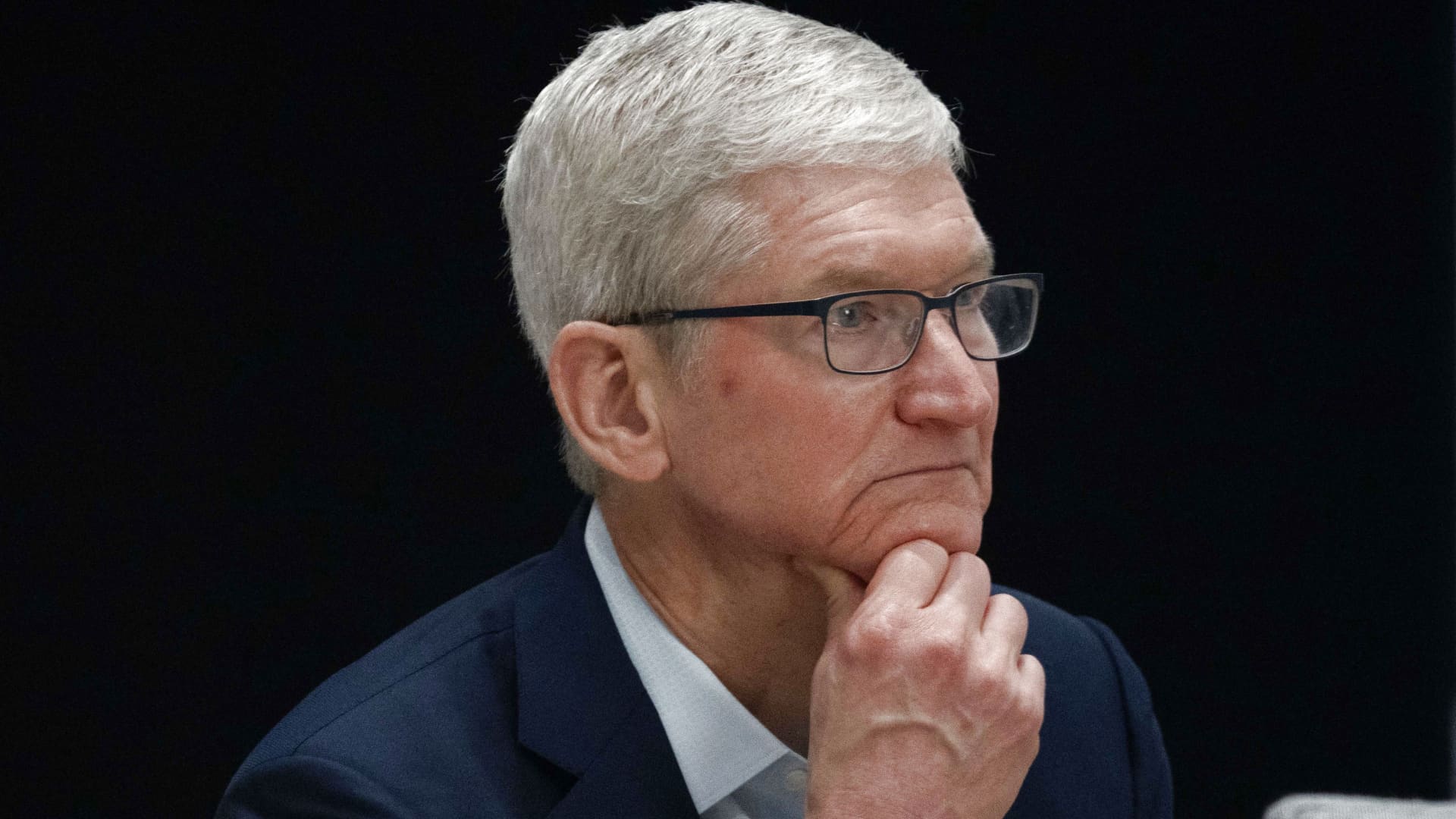The Department of Justice sued Apple on Thursday, saying its iPhone ecosystem is a monopoly that drove its “astronomical valuation” at the expense of consumers, developers and rival phone makers.
Federal antitrust enforcement and 16 attorneys general also say that Apple’s anti-competitive practices extend beyond the iPhone and Apple Watch businesses, citing Apple’s advertising, browser, FaceTime and news offerings.
“Each step in Apple’s course of conduct built and reinforced the moat around its smartphone monopoly,” the complaint filed in the District of New Jersey said. Apple shares fell over 2% during trading on Thursday.
The Justice Department said in a release that to keep consumers buying iPhones, Apple moved to block cross-platform messaging apps, limited third-party wallet and smartwatch compatibility and disrupted non-App Store programs and cloud-streaming services.
The challenge represents a significant risk to Apple’s walled-garden business model. The company says that complying with regulations costs the company money, could prevent it from introducing new products or services, and could hurt customer demand.
The lawsuit could force Apple to make changes in some of its most valuable businesses: The iPhone, in which Apple reported over $200 billion in sales in 2023, the Apple Watch, part of the company’s $40 billion wearables business, and its profitable services line, which reported $85 billion in revenue.
“If left unchallenged, Apple will only continue to strengthen its smartphone monopoly,” Attorney General Merrick Garland said in the release.
Apple said in a statement that it disagreed with the premise of the lawsuit and that it would defend against it.
“This lawsuit threatens who we are and the principles that set Apple products apart in fiercely competitive markets. If successful, it would hinder our ability to create the kind of technology people expect from Apple—where hardware, software, and services intersect,” an Apple spokesperson told CNBC. “It would also set a dangerous precedent, empowering government to take a heavy hand in designing people’s technology.”
The lawsuit follows years of investigations into Apple’s business practices and two prior DOJ cases against Apple: One over e-book prices and another over allegations that it colluded with other technology companies to depress salaries.
“This anticompetitive behavior is designed to maintain Apple’s monopoly power while extracting as much revenue as possible,” the complaint said.
iMessage, Apple Watch, and cloud gaming
The complaint highlights comments from CEO Tim Cook and other executives. Some users have asked Apple to improve Android-to-iPhone messaging. Developers have gone as far as creating apps that can circumvent the platform limitations, only to be shut down by Apple.
Prosecutors highlighted one exchange between Cook and a consumer.
“Not to make it personal but I can’t send my mom certain videos,” the complaint says one user told Cook, referring to a 2022 interview at a Vox Media event.
“Buy your mom an iPhone,” Cook responded.
The DOJ is also focusing on Apple’s smartwatch, Apple Watch, saying the company designed it to only work with iPhones, and not Android devices. The company’s decision means that “users who purchase the Apple Watch face substantial out-of-pocket costs if they do not keep buying iPhones,” according to the complaint.
The DOJ said Apple has fought cloud streaming services on its App Store platform, blocking consumer access to high-quality video games on iPhones, echoing complaints from Microsoft and Facebook parent Meta.
Apple has faced several significant antitrust challenges more recently, largely focused on its control over the iPhone App Store. It mostly won in a civil suit against Epic Games in 2021, although it made concessions during the trial and had to make some changes to its policies under California law.
“Today’s lawsuit seeks to hold Apple accountable and ensure it cannot deploy the same, unlawful playbook in other vital markets,” Assistant Attorney General for antitrust Jonathan Kanter said in the release.
The company is currently jockeying with the European Commission over whether it’s complying with a new Digital Markets Act, which forces Apple to open up the iPhone app store to rivals such as Microsoft or Epic Games. Apple plans to charge big companies that eschew its app store 50 cents per download.
Apple was fined $2 billion in the EU over a dispute with Spotify about whether the music streaming service can link to its website and account system inside of its app.
Apple had 64% of the market share for U.S. iPhones in the last quarter of 2023, versus 18% for Samsung, according to Counterpoint Research.
Apple isn’t the only big tech company facing government scrutiny. The DOJ filed an antitrust case against Google in 2020 over its dominant search position and another year over its advertising business. The DOJ also famously sued Microsoft in the 1990s, eventually forcing it to allow users to unbundle the Internet Explorer browser from the Windows operating system.
This is breaking news. Please check back for updates.
